Yes, WhatsApp can indeed be hacked through all types of malicious applications or even nasty links. Hackers might be using some sort of "phishing" trick to lure the user into typing his account details or getting him to download a nasty piece of software. It is thus a possibility that clicking on suspicious links or downloading some untrusted applications might create security issues for your WhatsApp account.
WhatsApp Account Hacked? Complete Recovery Guide
The scariest part about getting hacked on WhatsApp is how easy it can happen—and how invisible it can feel until it's too late.
A few months ago, I woke up to a flood of texts from friends asking if I was okay. Someone had messaged them from my WhatsApp account in the middle of the night—sending weird links and cryptic voice notes. I hadn't touched my phone. I was locked out of my own account within the hour. No warnings, no red flags I had noticed. Just like that, someone hacked my WhatsApp.
So, this guide offers everything I've learned from getting hacked, plus some of the latest tactics hackers use to break into WhatsApp accounts. If you've read this far, let's find out more.
- 1. Real-World WhatsApp Hacking Cases: What You Need to Know
- 2. How Hackers Gain Access to Your WhatsApp Account
- 3. How Do You Know If Your WhatsApp been Hacked
- 4. How to Recover Your Hacked WhatsApp Account

- 5. How to Prevent Your WhatsApp from Getting Hacked Again
- 6. How to Access Someone's WhatsApp Remotely(Positive Effect)

- 7. What are the Common WhatsApp Scams You Need to Avoid
Real-World WhatsApp Hacking Cases: What You Need to Know
The Internet is full of stories of "WhatsApp hacked," and one that really got to me was a Redditor who, in the dead of the night, got hacked. A verification code was sent to his email while he was asleep, someone accessed his WhatsApp for about two hours and then left without a clue.
Generally, once someone has access to your WhatsApp account, they'll see your recent messages and can even masquerade as you. And even if they don't do this, they can install backup tools, scrape data, or even just use your account as a launchpad to scam all of your contacts.
It's not just happening to individuals; it's happening to businesses as well.

In 2019, WhatsApp sued the Israeli surveillance company NSO Group for using Pegasus spyware on its users. This wasn't some random phishing attack. The spyware exploited a flaw in WhatsApp's video calling feature. All the attacker had to do was place a call—even if the recipient didn't answer, their phone could still be infected.
Knowing what these hackers could do is half the battle. The other half? Protecting yourself so it never happens again.
But, let's look at how they get into our WhatsApp Account first.
How Hackers Gain Access to Your WhatsApp Account
If your WhatsApp was a front door, most people imagine a hacker picking the lock. But in reality? They often just trick you into handing over the keys.
Here's how the most common hacks actually happen.
1 SIM Swapping
This one is subtle—and dangerous.
In a SIM swap, the hacker convinces your mobile provider to transfer your number to a new SIM card. Once that's done, they receive all your texts and calls—including the one-time passcodes WhatsApp uses to verify your account.
Suddenly, they've locked you out of your own number.
2 Phishing and Fake Links

We all know not to click shady links. But hackers are getting smarter, and their messages can sound eerily legit.
They might pretend to be WhatsApp support. Or send you a code and ask you to "verify" something. It's social engineering 101: play on urgency, fear, or curiosity to get you to hand over that 6-digit login code.
Rule of thumb: If someone asks for your WhatsApp verification code—even if they seem like a friend—don't give it out. Ever.
3 Malware and Spy Apps
Some hacks don't start with WhatsApp. They start with the apps you didn't even know were running in the background.
Spyware can be hidden inside sketchy apps, shady APK downloads, or malicious email attachments. Once installed, it can monitor your messages, read your keystrokes, or take screenshots silently.
Signs to watch for:
- Battery draining fast
- Phone overheating
- Unexpected permissions granted to unknown apps
4 WhatsApp Web Vulnerabilities
Ever used WhatsApp Web at work or on a shared computer and forgot to log out? That tab you left open could be your biggest vulnerability.
If someone gains access to your computer—or even just scans the QR code behind your back—they can mirror your WhatsApp account and read your messages in real-time.
So how do we know if our WhatsApp account has been hacked? If your WhatsApp starts acting weird and you can't shake the feeling that something's off, trust your instincts.
How Do You Know If You WhatsApp Been Hacked
Here are the top 5 unmistakable signs Your WhatsApp account has been hacked:
1 You WhatsApp suddenly logged out
If WhatsApp randomly asks you to verify your number, it could mean someone else logged in using your phone number and forced you out.
2 Whatsapp Unknown Device or Session Appeared
Check your linked devices under Settings > Linked Devices. If you see unfamiliar computers or browsers, someone might be snooping.
3 Messages You Didn't Send Appeared
Scan your recent chats. If your account is sending messages—especially with links or files—you didn't write, that's a major red flag.
4 Contacts Report Suspicious Messages
Friends or family telling you they got strange WhatsApp messages from you? It could mean a hacker is using your account to bait them.
5 Two-Factor Authentication (2FA) Has Been Changed
If your two-step verification PIN is suddenly different and you can't access it, someone may have hijacked your account and locked you out.
How to Recover Your Hacked WhatsApp Account
Base to the above content, or maybe a friend tipped you off after getting a weird message from "you." You've noticed some signs of theft in your WhatsApp account. Either way, don't panic—your account can be recovered.
Let's walk through the steps to take back control:
Step 1: Secure Your Phone and SIM Card
If you suspect SIM swapping, your first move is outside WhatsApp. Contact your mobile service provider immediately to block your current SIM and issue a new one.
This prevents the hacker from using your number to continue accessing your account—or worse, hijack other services linked to your phone number (like email or banking apps).
Step 2: Log Out of All Active WhatsApp Web/Devices
If someone has access to your WhatsApp through a linked device, they could be reading your messages in real time—even if your app looks normal on your phone. Logging them out shuts the door.
Here's how to do it:
- 1. Open WhatsApp on your phone.
- 2. Tap the three dots (top-right corner on Android) or go to Settings (bottom-right on iPhone).
- 3. Select Linked Devices.
- 4. Tap on each session you don't recognize—or just hit Log out of all devices to be safe.
You'll see a list of all devices currently connected to your account.
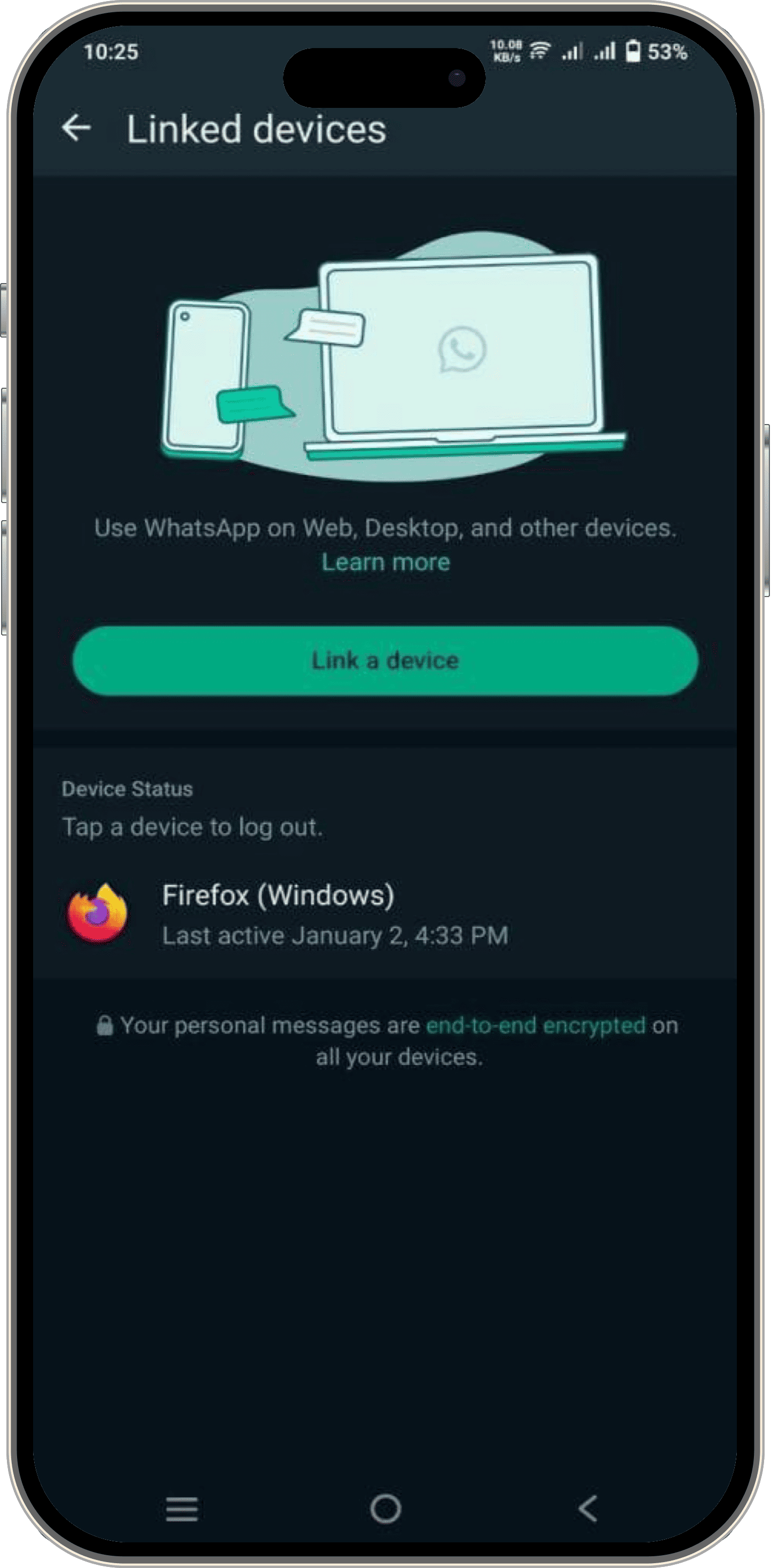
This instantly disconnects any sneaky third-party access. After this, keep your phone close and your QR code far away from unknown scanners.
Step 3: Initiate WhatsApp Account Recovery
Once you've locked things down on the device side, it's time to take back full control of your account. So how to recover your Whatsapp account?
Here's how to initiate the recovery process:
- 1. Delete and reinstall WhatsApp on your phone.
- 2. Open the app and enter your phone number.
- 3. You'll receive a 6-digit verification code via SMS. Enter it immediately. If the hacker has changed your number or SIM, you may not receive the code. In that case, contact your mobile carrier first to reclaim your number.
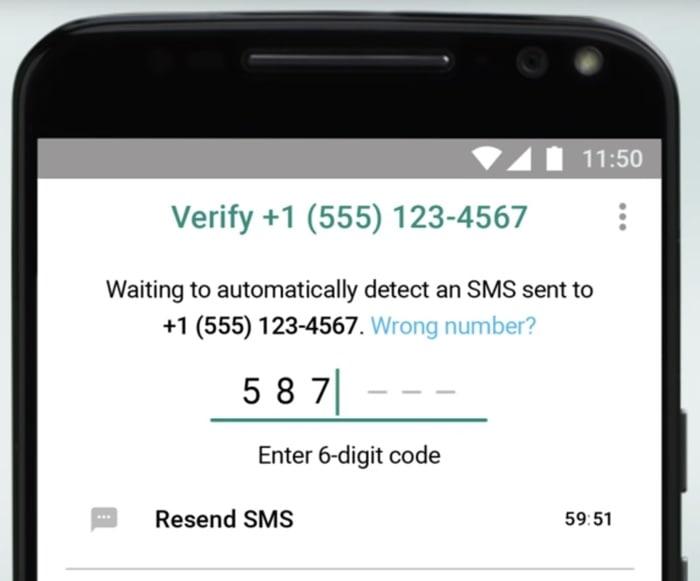
If the hacker set up two-step verification and you don't know the PIN, WhatsApp will lock you out for 7 days before you can verify again without it.
Once you're back in, all unlinked sessions will be logged out automatically. Now's the time to move on to the next step—locking things down even tighter.
Step 4: Reset Your Two-Factor Authentication
Regaining access is only half the battle—now it's time to make sure it doesn't happen again.
Here's how to reset or enable WhatsApp's two-step verification (2FA):
- 1. Open WhatsApp on your phone.
- 2. Tap the Settings tab (bottom right on iPhone, three dots > Settings on Android).
- 3. Go to Account > Two-Step Verification.
- 4. Tap Enable (or Change PIN if it's already set).
- 5. Create a 6-digit PIN that only you know.
- 6. Add a recovery email address—this helps if you ever forget your PIN or need to reset it later.
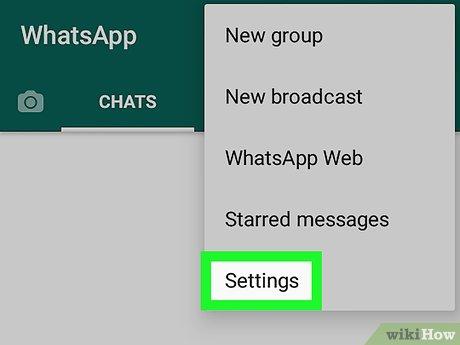
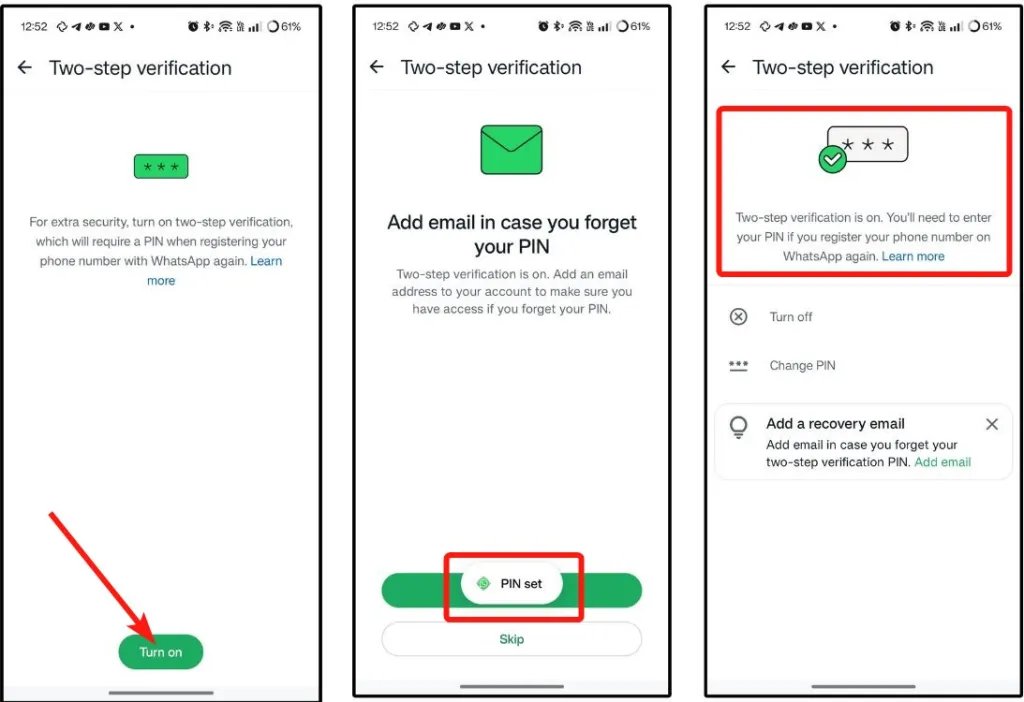
This extra layer keeps intruders out—even if they somehow get your SIM or password again. Think of it as your second lock on the door.
Step 5: Report to WhatsApp Support
If you've followed all the steps and still can't regain full control of your account—or if you believe the hacker changed key WhatsApp security settings—it's time to contact WhatsApp directly.
Here's how to do it:
- 1. Go to WhatsApp Help.
- 2. Select "Contact Us" and choose your device type (Android, iPhone, or Web).
- 3. Fill out the form with your phone number (including country code), a brief description of the issue (e.g., "My WhatsApp account was hacked, and I can't regain access"), and any screenshots or error messages if available.
- 4. Submit the request.
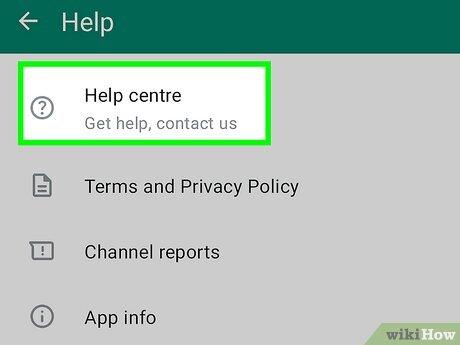
WhatsApp's support team usually responds via email. Be sure to check your spam folder, too.
Pro tip: If your email to support doesn't get traction quickly, send another message with "URGENT: Account Hacked – Need Immediate Help" in the subject line. It sometimes moves things along faster.
Once you're back in, consider this your reset moment: update your passwords, enable 2FA, and audit your WhatsApp privacy settings.
Advanced Tips: (Steps to) Prevent Your WhatsApp from Getting Hacked Again
Getting your account back is one thing. Keeping it safe going forward? That's where the real power move lies. Here are some practical, not-too-paranoid ways to prevent future attacks.
1 Update your phone and WhatsApp regularly
Security vulnerabilities are often fixed in new updates. By keeping your apps and OS current, you're shutting the door on known exploits.
2 Use WhatsApp's built-in lock feature
Go to Settings → Privacy → Screen Lock and enable Face ID, fingerprint, or a passcode. This adds an extra layer of protection even if someone gets into your phone.
3 Be cautious of suspicious links and QR codes
Hackers love bait. Avoid clicking on random links in messages, even from friends—especially those offering prizes, giveaways, or free money. And never enter your verification code anywhere but inside WhatsApp itself.
4 Set strong passwords and secure your SIM card
Use a strong passcode on your phone and ask your carrier to add a PIN or password to your SIM. This helps prevent SIM swapping attacks.
5 Enable two-step verification
In WhatsApp, go to Settings → Account → Two-step verification and add a 6-digit PIN. It's one of the simplest, most effective ways to lock down your account.
6 Consider using a VPN
By encrypting your internet traffic, a reliable VPN makes it more difficult for hackers to snoop on you or infect you with malware, especially when using public Wi-Fi.
Hackers can get beyond WhatsApp by fooling users into disclosing verification credentials. But only after you engage with the attacker in some way is an attack considered successful. Therefore, reporting and deleting a suspicious email is the recommended course of action.
Bonus: How to Access Someone's WhatsApp Remotely (Positive Effect)
Getting into someone's WhatsApp without their permission is not only unethical but also illegal. However, in some circumstances, remote monitoring may prove to be quite beneficial as well as completely ethical. For example, parents aiming to protect little children from online risks or families helping an elderly relative who becomes more prone to scam activities: in such cases, transparency and consent hold everything.
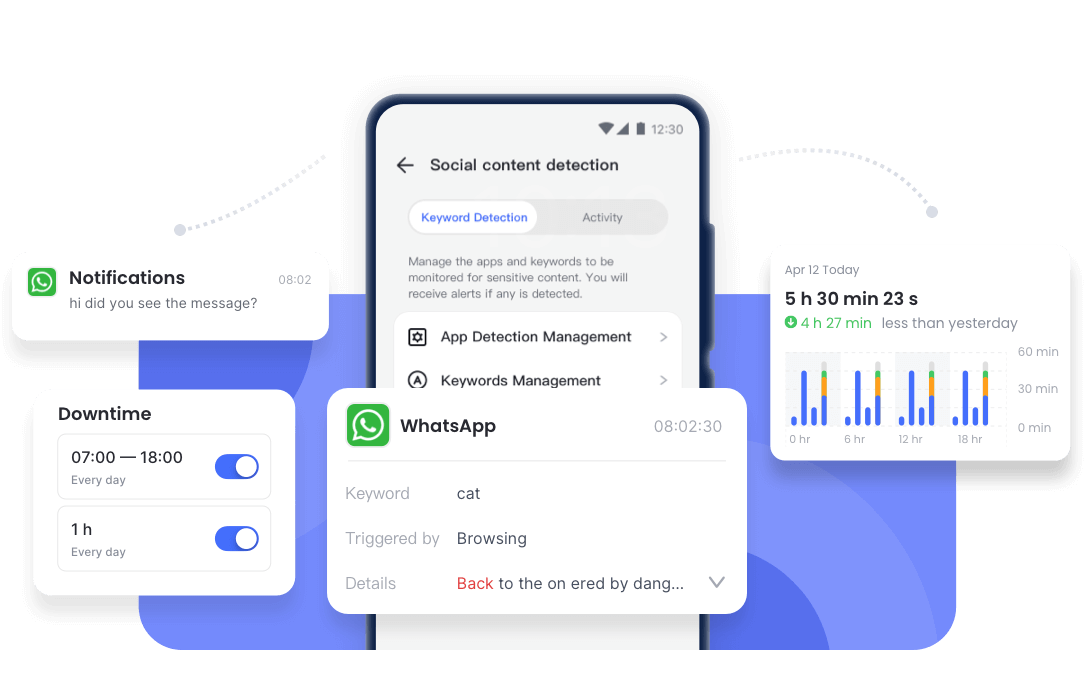
AirDroid Parental Control offers an approved and legal application of safety without crossing lines of ethics. With this, you can:
- Track Your Loved One's WhatsApp Messages Securely
- Receive alerts base on risky messages or explicit content
- Set screen time limits and device schedules
- Used embedded family chat for communication over an end-to-end WhatsApp encryption channel
- Keep track of the applications and try to find anomalies
When used responsibly, AirDroid gives families a way to stay connected and secure without invading privacy. It's not about spying—it's about support.
Common WhatsApp Scams You Need to Avoid
Finally, let us to understand the most popular methods used by hackers to propagate malware on WhatsApp, start frauds and ransomware, and steal data.
It functions by installing the WhatsApp software on their phone, entering your phone number, and obtaining the verification code to get access to the account. Hackers can register your number on the app. The hacker will attempt to fool you into giving over the code after sending the verification code to your phone.
The con artist shares with the target a QR code for scanning and sending money after the target agrees. The trickster then empties the victim's bank account using details that the victim accidentally shares.
Always verify the source before scanning any QR code. Also, remember that receiving money does not require any code to be scanned.
In case you are duped and place the call, all your calls will be forwarded to the attacker's number. The attacker can install WhatsApp, verify your number, and then call you to get a verification code once he has sent his phone calls through to his phone.
Most scammers pretend to be WhatsApp support and will ask you to confirm your identity by providing personal information. They will further "assist" by asking for six-digit WhatsApp codes or credit card numbers through Telegram or SMS.
Here, there are two primary hints to watch out for:
- The sender's profile image carries a verification checkmark. The badge of verification is not as the avatar itself but rather next to a contact name on WhatsApp official accounts.
- Never will you receive any messages from an official.
These messages purposefully impersonate respectable businesses. But the intention is to trick you into installing malware or disclosing personally sensitive information.
Verify that you have subscribed to the company's notifications if you receive a WhatsApp message from them. Otherwise, disregard the warning and remove it. Before clicking on any promotional links, examine the company's official website or social media pages to see if the offers appear genuine or alluring.
Conclusion: Stay Safe and Secure Your WhatsApp Now
Hacking isn't something most people think will happen to them—until it does. And when it does, it can feel like your world is suddenly at risk, with your personal data, contacts, and conversations exposed.
The good news? There are clear, actionable steps you can take to prevent WhatsApp hacking and recover your account if you ever fall victim. From securing your phone and SIM card to keeping your apps updated, each measure adds another layer of defense to protect your privacy and security.
And remember, with tools like AirDroid Parental Control, you can stay ahead of potential threats, monitor for unusual activity, and ensure your family stays safe while using WhatsApp.
By staying vigilant, cautious of suspicious links, and using the built-in security features WhatsApp offers, you can keep your account safe and enjoy peace of mind knowing you've taken control.
Secure your WhatsApp today—because your privacy matters.
FAQ: About Hacked WhatsApp Accounts
Should you not be able to get onto your WhatsApp account, the thing to try first would be account recovery. Complete the recovery process by verifying your phone number and then if two-factor authentication has been set up, use the “Forgot PIN” or "Forgot Password" options. Once you can't get back in, contact WhatsApp support for additional help.
The process to recover a hacked WhatsApp account can take different times. Normally, if one has access to their phone number and can verify that they are the owner, this process could just take a couple of minutes. However, if more conditions are to be verified or once your SIM card has a problem, the process could be delayed further.






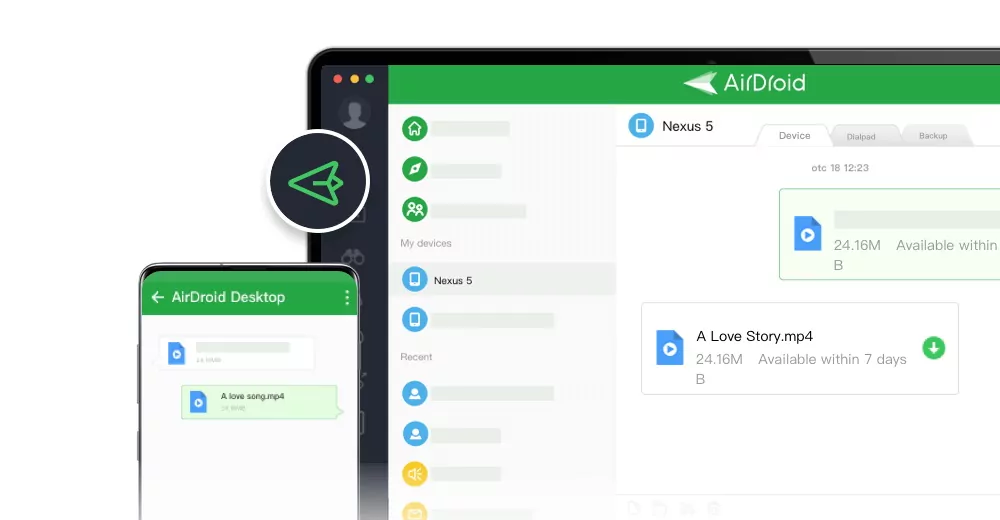




Leave a Reply.